Rank Math and Declining Rankings: 5 Common Reasons
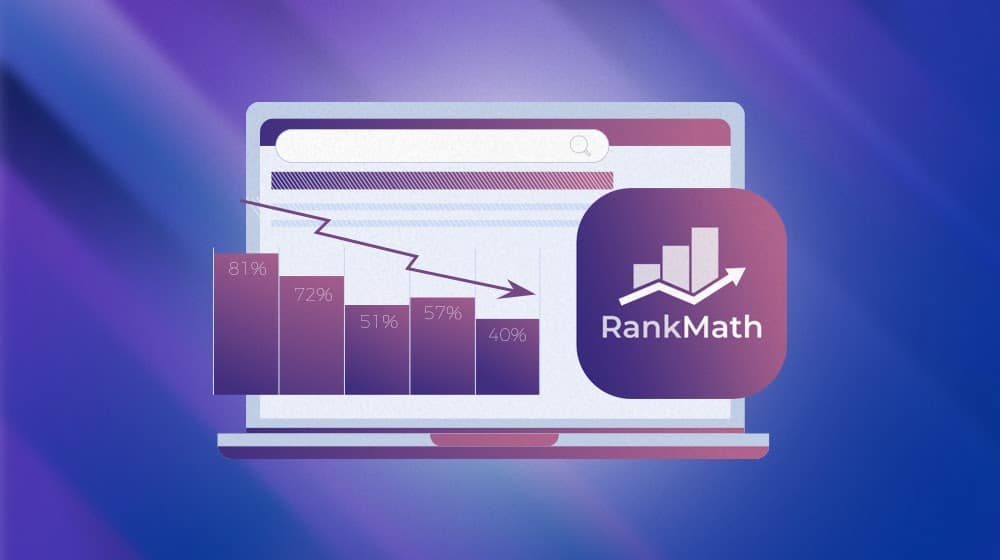
Recently, I switched from Yoast to Rank Math for my primary sites and a handful of clients that approved the change. I've noticed some changes in search ranking because of it, and I've been tracking down the causes. As it turns out, there are a few common reasons why your search rankings might decline when switching to Rank Math.
The good news is that all of these causes are easy to address and fix. Any ranking drops you see when switching to Rank Math are temporary as long as you fix the problems, and you can usually avoid them completely. They aren't guaranteed to happen, either.
Let's talk about the five most common reasons why you might see your search ranking drop with Rank Math and what you can do to fix it.
Before We Begin: Validating the Damage
Before I get into the specific reasons why your ranking might have dropped, we need to talk about one of the biggest factors.
Unrelated changes.
We all know that Google is constantly making changes to its systems, mostly in invisible ways we can't see. Sites jump up and down regularly. It's super common to change positions day to day or week to week. Significant drops are more likely due to site factors or a larger algorithm update, but small changes aren't necessarily.
Before you start to panic and worry about Rank Math tanking your site, you should double-check to see if it could really be the cause. Here are some things to check and filter out first.
Did Google make a change to their algorithm at the same time?
A few years ago, Google reps said that Google makes an average of nine changes to their system per day. If you make a change to your site and you see a ranking drop, it might be related to a Google change, not your site change. You can use the MozCast to check how variable Google was the day you made your changes. No, it's not a podcast; it's a forecast, like a weather report for Google.
Did you change anything else about your site?
I often find that people making a large change to their site like switching SEO plugins are also likely making other changes too. Maybe you went through and revamped a bunch of metadata. Maybe you changed a social media or promotion strategy. Maybe you started implementing changes you decided on when you performed a content audit.
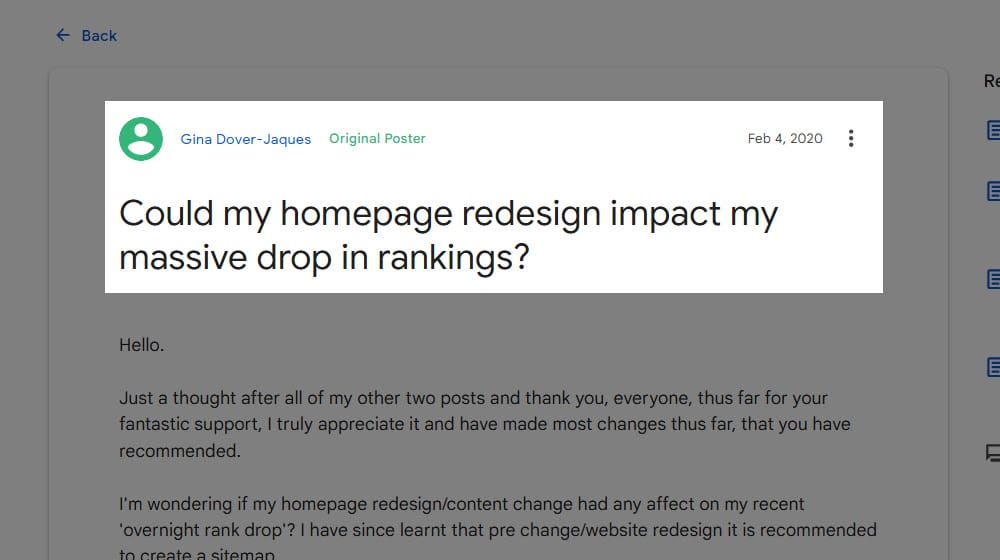
It's easy to pick one thing you did and blame it for a drop, but it might not be responsible. Think about more than just switching the plugin, and look at other things you did in the past few days as well.
Are you looking at the right data?
Another common problem I see a lot is people who zoom in too far on their analytics. Like I already mentioned, sites bounce up and down in search ranking, traffic, and other metrics on a daily basis. You really can't rely on looking at a few hours or a few days of data.
Ask yourself: is the drop for the whole domain or just a couple of pages? Is the drop very minor and just for a few keywords, or for everything? Is the drop similar in scale to other drops you've seen over a day or two in the past? You might not have a real drop at all, but you're overly sensitive because you just made a big change, and you want to make sure it's not hurting you.
Are you using the same tracking?
Similar to the previous question, it's important that you gather data the same way when you compare it. Rank Math includes a rank tracker that is very handy. The trick is that it might use a different methodology or keyword set than whatever rank tracker you used before. If you see a different rank in Rank Math's dashboard than you did with another tracker, it might just mean a different data source.
If you've gone through these filtering questions and you still think the change to Rank Math is responsible, we can dig into the reasons why that might be the case. Read on for my five common reasons.
#1: Your Sitemaps Changed
Out of every site that I've switched to Rank Math, no matter what SEO plugin it was using before, this is the biggest cause of a drop in rankings.
Your sitemap is a list of the pages on your site that you want the search engines to know about. You can have more than one sitemap, such as a sitemap for news that is checked more often, a sitemap for blog posts, a sitemap for images, and more. Managing your sitemap is an important feature of an SEO plugin.
Switching to Rank Math is very likely going to change your sitemaps in some way. You might have had several, and now you have one. You might have had one, and now you have several. These alone aren't likely to be the problem, though. No, the problem is likely one of three things.
Your highest-value pages are left off the sitemap. This is the least common of the three. It can happen if, for example, you had multiple sitemaps for blog posts and kept one specifically for your pillar pages and other valuable content. Then, when you switched, Rank Math didn't catch those pages properly. This almost never happens, but it might be worth double-checking.
Your lowest-value pages are added to the sitemap. This is a lot more common. If Rank Math crawls your site and adds every page to a sitemap for you, you might end up with all sorts of bad pages listed. These include pages like attachment pages, tag pages, and other garbage that WordPress creates. It's doubly bad if you have these banned using robots.txt or .htaccess rules, so Google is told those pages exist but can't view them.
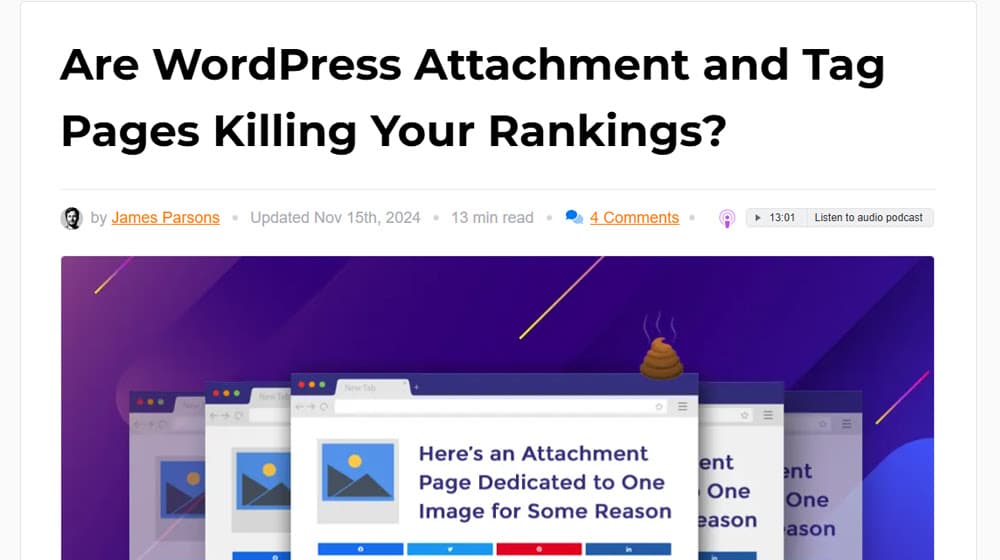
Note: A related issue is that sitemaps might be set to cache, rather than update constantly like they should. I'll cover caching more in a later entry on this list.
Your sitemap changed URLs. The third option, and another common problem, is that your sitemaps changed URL name. This isn't a problem on its own, but it causes a problem you might have overlooked. When you tell Google about a sitemap, you give them the URL to that sitemap. If Rank Math changes the URLs, Google won't have them anymore, and the URLs they do have are broken.
Fortunately, solving all three of these is easy. Review your sitemaps and make sure they show what you want, and put the new URLs in your Google Search Console.
#2: You Duplicated Schema Data
One of the most important modern features an SEO plugin handles for you is Schema markup. Adding Schema, even to basic blog posts, can be very valuable to your SEO. You're even allowed to use multiple types of Schema on a single page as long as you do it right.
The problem comes when you use Rank Math to add Schema markup data to your site. Even that isn't a problem unless you're already using another plugin to add Schema.
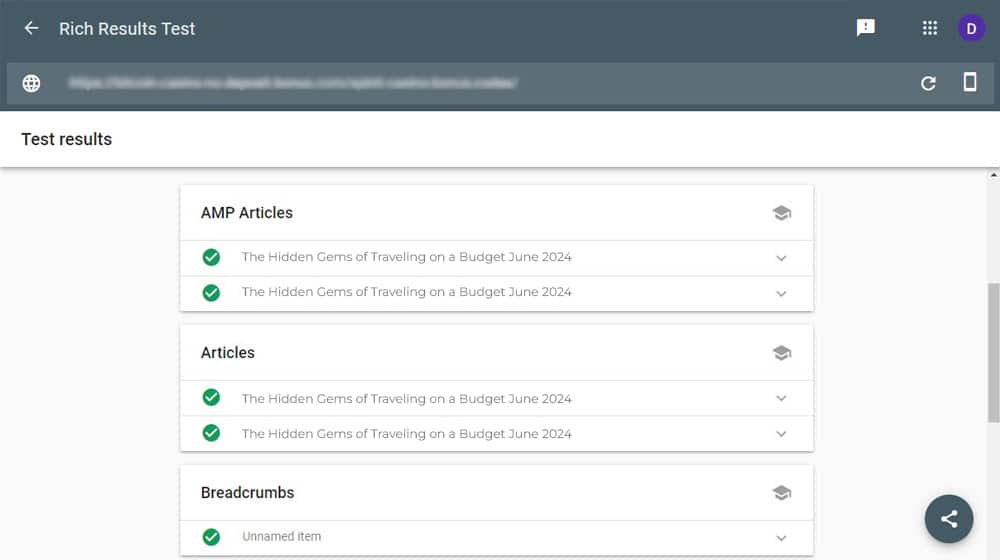
If you used your previous SEO plugin, like Yoast, AIOSEO, or SlimSEO, to manage your Schema, switching to Rank Math shouldn't be a problem. Removing the old plugin and adding the new plugin just changes how it's managed and shouldn't double up on Schema data.
If you use a separate, dedicated Schema markup plugin, like Schema Pro, Structured Content, or Schema and Structured Data, you might end up with two different plugins trying to add the same code. Sometimes it doubles up, sometimes, it conflicts, and sometimes it causes code errors and breaks entirely.
All of these issues are problems that effectively invalidate your code. Google looked at it and said, "What am I supposed to do with this?" They can make their best assumption, but rather than get it wrong, they are more likely to ignore it. You end up losing out on Schema value.
This is also an easy fix. Either get rid of the dedicated Schema plugin and let Rank Math handle it, or disable the Schema portion of Rank Math. Personally I prefer to cut down on the number of plugins in use whenever possible.
#3: You Duplicated Plugin Functionality
This one is a piggy-back on the previous one. Rank Math is a very powerful all-in-one SEO plugin. That means it has a ton of features. I love it because it can manage just about anything I want it to do in the scope of general SEO.
The downside is that you probably had to have a bunch of different plugins doing the same things before.
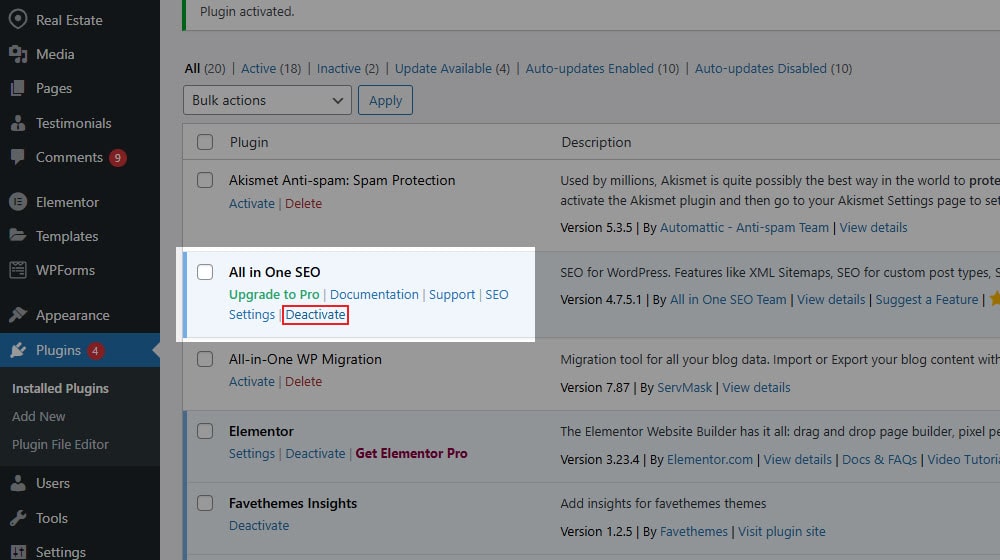
Plugins like Yoast do a lot, but they don't cover all of the bases the same way.
- Image SEO
- Local SEO
- Contact Widgets
- Keyword Insertion
- Meta Data
- Commerce SEO
- Page Speed Optimization
- Core Web Vitals Optimization
- OpenGraph Configuration
- Post Type Management
Rank Math has so many features that it's easy to duplicate something you have another plugin for. Much like the Schema problem, it's easy to disable one or the other to fix the issue, so the hard part is just tracking it down.
#4: Rank Math Purged Your Cache
One of the most important modern SEO factors is page speed and loading time. One of the best ways to improve loading times for nearly everyone is to use a caching plugin. Rank Math doesn't do caching itself, but it works with other caching plugins.
The issue you might run into is that when you install Rank Math and set it up, it might trigger a purge and re-cache of your site. This allows the plugin to start from square one, but it does mean everything will need to be re-cached. Re-caching can be a slow process, and depending on how your caching plugin is set up, it might mean some visitors (or Google) will see a slow page initially.
Fortunately, this is both sorted out on its own and will be, at most, a temporary drop in rankings until it's reestablished that your site speed isn't suddenly bad.
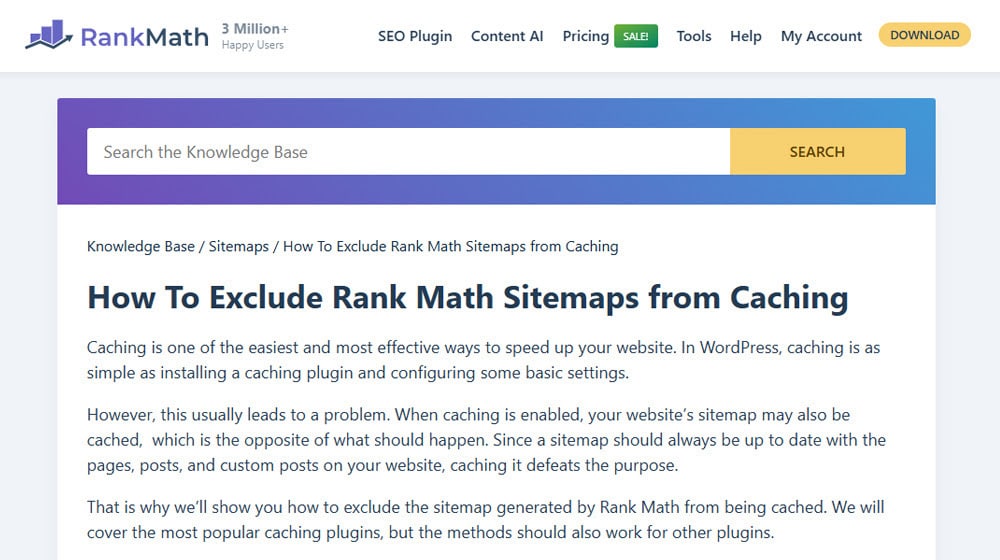
I mentioned in a note above that you might find your sitemaps end up cached. This is simple to solve but the specific steps depend on your caching system. Fortunately, Rank Math has a whole page dedicated to how to fix it for any of them. Check it out!
#5: You Kept an Improper Configuration
One of the perks of Rank Math is a simple setup wizard. When you install the plugin, it will guide you through an initial configuration. Once it's installed, you can change anything you like, but it gives you a good place to start.
If the initial setup configuration isn't quite what you need, it can hurt your site. This is especially true if you previously used a tailored config for Yoast or another plugin. You'll need to replicate the important settings from your previous configuration.
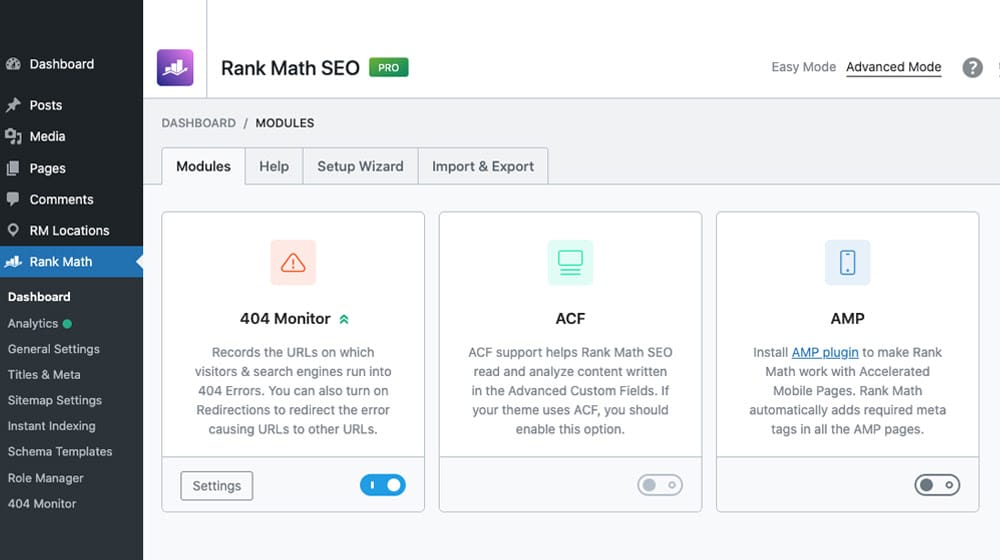
Until you completely customize your Rank Math installation, you might be a little worse off than you were before. On the bright side, once you get the settings down, you'll be in a much better position.
For what it's worth, in my experience, no drop caused by switching to Rank Math has lasted more than a few days or a week after the causes were fixed. In fact, I've seen increased rankings across the board once I've been able to fully use the plugin. It might take a bit of getting used to, but it's very powerful and gives you a lot more control than what you might have had before. Even with the very small risk of a drop, I highly recommend Rank Math. Frankly, it's incredible I didn't switch a long time ago! Now, it's right up there with WP Rocket in terms of must-have plugins for a WordPress site, in my opinion.










Comments